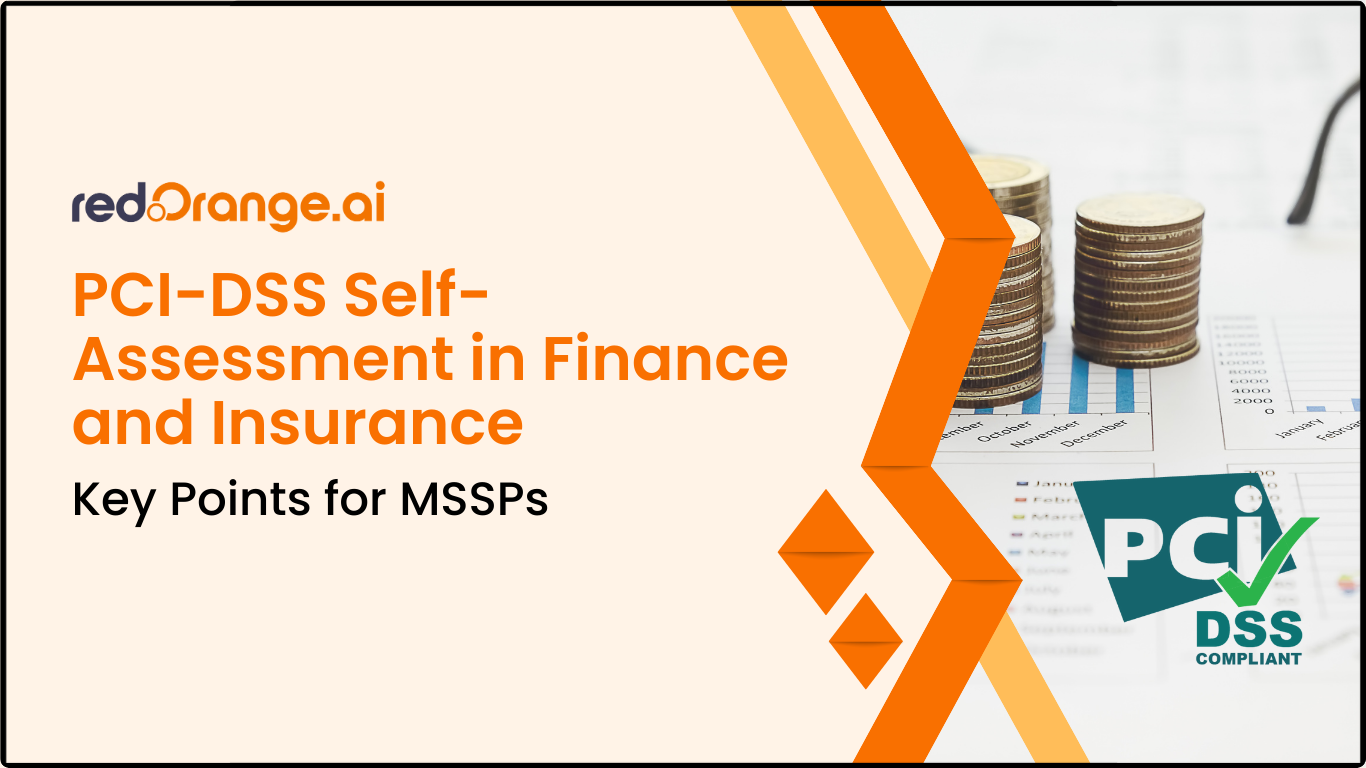Tackling PCI-DSS Self-Assessment in Finance and Insurance for MSSPs
For Managed Security Service Providers (MSSPs) working in finance and insurance, tackling PCI-DSS compliance is mission-critical.
The Payment Card Industry Data Security Standard (PCI-DSS) sets rigorous security requirements to protect credit card data and mitigate risks. To support clients effectively, MSSPs must not only understand PCI-DSS but also be adept at guiding clients through the self-assessment process. Here’s a comprehensive guide to the key points MSSPs need to consider when navigating PCI-DSS self-assessment in regulated sectors.

Overview of PCI-DSS
The PCI-DSS framework was developed by the PCI Security Standards Council to ensure that companies accepting, processing, storing, or transmitting credit card information maintain a secure environment.
PCI-DSS compliance involves more than simply meeting requirements; it requires a thorough understanding of security best practices, including encryption, access controls, and monitoring. This depth of security safeguards not only client information but also helps companies uphold trust with clients in the finance and insurance sectors, where data breaches can lead to significant reputational and financial harm.
Importance of Self-Assessment Questionnaires (SAQs)
SAQs are essential tools in the PCI-DSS compliance journey. They enable organisations to assess their own security posture and identify areas for improvement. The choice of SAQ is determined by how payment transactions are handled:
- SAQ A: For organisations that fully outsource payment processing to a third party
- SAQ A-EP: For those redirecting customers to a third-party processor while still retaining some role in processing
- SAQ D: The most comprehensive, for entities directly processing payments that must meet all PCI-DSS requirements
MSSPs play a critical role in helping clients choose the right SAQ by assessing transaction methods and identifying the specific requirements applicable to each business model. This guidance ensures clients understand the nuances of their compliance responsibilities and helps streamline their compliance efforts.
Challenges Faced by MSSPs
Complexity of Compliance
Quality of Audits
Resource Allocation
Client Education
Integration with Other Frameworks
Finance and insurance organisations often need to comply with multiple regulations, such as HIPAA, NIST, and GDPR. Integrating PCI-DSS requirements with these other frameworks can be complex. MSSPs must work closely with clients to ensure a unified approach to compliance, reducing redundancies and creating a more holistic security posture.
Solution and Best Practices for MSSPs
To effectively guide clients through PCI-DSS self-assessment, MSSPs can adopt several best practices that enhance compliance efforts and strengthen security.
Regular Training and Updates
Comprehensive Risk Assessments
Collaboration with Compliance Experts
Automated tools streamline compliance by monitoring adherence to PCI-DSS standards, reducing the burden on staff, and ensuring ongoing compliance. Technology solutions allow MSSPs to identify potential compliance gaps early, making it easier to address issues before they become problematic.
Client Engagement
Conclusion
By focusing on client education, comprehensive risk assessments, and collaborative efforts, MSSPs can support clients in achieving and maintaining PCI-DSS compliance while enhancing their overall security posture.




